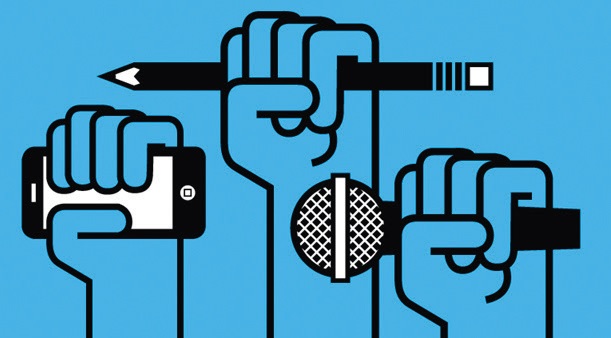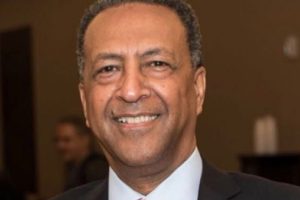
Since Abiy Ahmed came to power, the environment for the media has improved significantly, heralding a start of a more hopeful era for press freedom. Hundreds of websites, blogs and satellite television channels have been unblocked during the year.
The government released imprisoned journalists, and there are no journalists in Ethiopian prisons for the first time since 2004. The government has also lifted bans against the diaspora run media like ESAT and OMN, which started to operate in the country.
While Ethiopia has shown marked improvement in press freedom, which was illustrated by being chosen to host this year’s ‘World Press Freedom Day’, experts say that there are still potential pitfalls that can hinder the positive change and make the process incomplete.
Tewodros Kassa, founder and Managing Editor of ‘Habesha Wog’ Magazine says that the country has seen more press freedom under the leadership of Prime Minister Abiy, adding that reporting the facts about the political condition of the country before meant being thrown in jail due the government’s intolerance to dissenting views.
He adds that the improvement in press freedom is enabling journalists to freely access information from sources and report it without any restriction.
Currently, public and private media institutions have been reporting without fear.
Tewodros notes that a year ago, journalist operated under fear and self-censorship, and license was given only for media institutions which shower positive message towards the government and the ruling party.
Before the reform, he continues, sometimes private media personnel prefers to hide their address, fearing harsh punishments. “I fled to neighboring countries Kenya and Uganda for two years for fear of what might happen to me.”
Nevertheless, although the government has paved the way for press freedom, still there are some government bodies that are not open to provide information for media, he remarks.
Moreover, some media are not undertaking their work in a responsible manner, taking advantage of the freedom. “They are acting as mouthpiece of their respective ethnic groups.”
Aschalew Getachawu, owner of Mountains Media and Communication, says that Ethiopia has seen an improvement in the level of press freedom in one year than it has in the past. “In terms of press freedom, the country has showed an improvement of 40 places in its ranking since last year.”
He underscores that currently there is no challenge in terms of reporting stories freely, but the challenge is on reporting in a responsible and ethical manner.
This is more telling when we consider that ethnic-based hate messages and fake news that harm the long lasting coexistence culture of different ethnic groups are transmitted through the social media, Aschalew adds.
Saying that ‘losing freedom harms human beings more than losing food’, he states the fact that Ethiopia is hosting the 2019 edition of World Press Freedom serves as a recognition for the breakneck speed the country is improving its record on freedom of expression, and democratic reform in the media sector. It also brings a great advantage for the country in terms of promoting the abundant cultural resources and investment opportunities that exists in the country, according to him.
Seid Mohammed, Assistant lecturer at Wolaita Sodo University Department of Public Relations and Communication, points out that various changes have been seen in the country since Abiy came into office, including the fact that the media (both the public and the private) and the public reflect their opinion freely.
Within one year, Ethiopia has shown great commitment to ensure freedom of press, which culminated in being chosen to host this year’s world press freedom day.
This is exciting because not only it helps to raise awareness about the importance of press freedom, but also as a sign of exercising democracy.
Nowadays, he says, some journalists are reporting news that mimics the stance of different interest groups or political parties. So, journalists should work according to the professional ethics.
In some cases, there is a chance that freedom will be abused and be used for negative outcomes, and as a tool to undermine rule of law. So, the political leaders better set guidelines on social media or make sure Ethiopia has its own social media”.
Further, he urged facebook users to verify and cross-check information they see or hear on social media before accepting it as a fact.
The Ethiopian Herald May 1/2019
BY TAMERU REGASA





